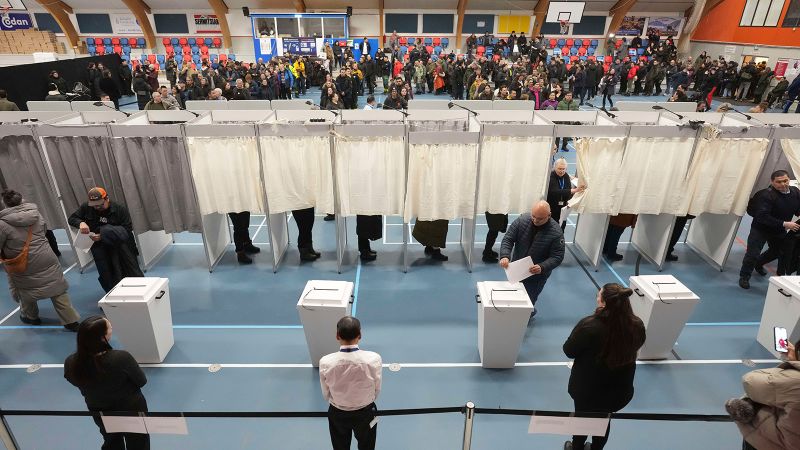Greenland election dominated by Trump

Greenland's recent parliamentary election, closely watched on the international stage, saw the pro-business opposition party, Demokraatik, emerge victorious. This outcome follows a campaign heavily influenced by both former US President Donald Trump's controversial suggestion of annexation and increasing demands from Greenlandic residents for independence from Denmark. The Demokraatik party, advocating a more gradual path to independence, secured 29.9% of the vote, according to official results.
The incumbent ruling party, Inuit Ataqatigiit, a democratic socialist party, along with its coalition partner Siumut, collectively garnered 36.1% of the vote. Inuit Ataqatagiit views independence as a long-term endeavor necessitating extensive negotiations with Denmark and further economic development. The main opposition party, Naleraq, campaigned on a platform of rapidly severing ties with Denmark, received 24.5% of the vote.
Despite differing strategies, all major parties in Greenland, a Danish autonomous region with significant oil and gas reserves, share the common goal of achieving independence from Denmark. Promises of increased autonomy have been a recurring theme in Greenlandic elections, though concrete timelines have remained elusive. Trump's annexation proposal has brought international attention to the election and raised concerns about the island's future security amid growing competition for influence in the Arctic from the United States, Russia, and China.
Trump's remarks regarding Greenland, including his statement to Congress that "I think we're going to get it one way or the other," have fueled fears of potential forceful or economic coercion by the United States. However, analysts suggest that Trump's assertive stance has paradoxically strengthened Greenland's bargaining position with Denmark and invigorated the independence movement.
Denmark governed Greenland as a colony until 1953, after which the island gained increased self-governance. Further powers related to minerals, policing, and courts of law were devolved in 2009. Nevertheless, Denmark retains control over security, defense, foreign policy, and monetary policy. Greenland also benefits from Denmark's membership in the European Union and NATO.
While Greenlandic politicians have consistently expressed disinterest in annexation, they remain open to potential agreements with the United States concerning rare earth mining, tourism expansion, stronger diplomatic ties, and other investments. The United States already operates a military base in the Arctic Circle in northwestern Greenland.
A January poll, commissioned by Danish and Greenlandic newspapers, revealed that 85% of Greenlanders oppose becoming part of the US, with nearly half considering Trump's interest a threat, according to Reuters. Naleraq candidate Qupanuk Olsen stated, "I strongly believe that we will very soon start to live a life more based on who we are, based on our culture, based on our own language, and start to make regulations based on us, not based on Denmark," as reported by Reuters.








